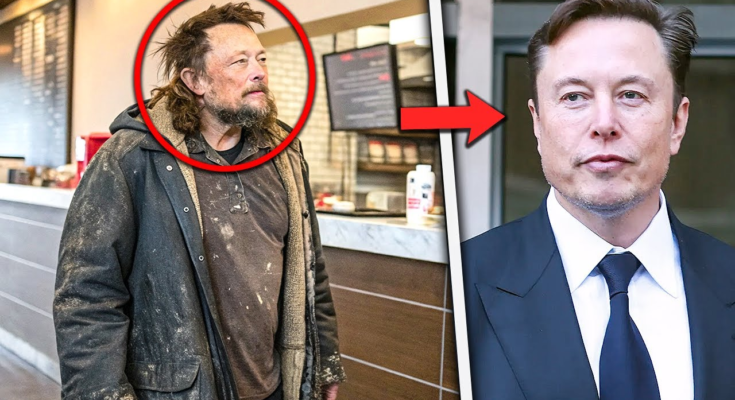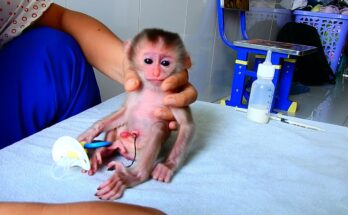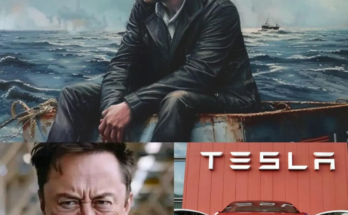
What would happen if one of the world’s most recognizable figures stripped away his wealth and status and walked into a room as an ordinary man? For Elon Musk, the answer lay in an undercover experiment that revealed startling truths about human behavior.

The Setup: A Billionaire Disguised as a Nobody
The idea began as a simple curiosity for Musk: How would people treat someone who seemed to have nothing? To find out, he donned a disguise — thrift shop clothes, scuffed sneakers, and an unkempt wig. A makeup team added the finishing touches, transforming the tech mogul into a weary-looking man who appeared down on his luck.
His destination? The Copper Elm, an upscale restaurant in Santa Fe, New Mexico, known for catering to an exclusive clientele. With every detail in place, Musk stepped into the restaurant, ready to observe how appearances shape our actions.
The Experiment Begins
The Copper Elm exuded elegance: crystal chandeliers, immaculate tables, and a hum of refined conversation. But the moment Musk stepped inside, the atmosphere shifted. Patrons glanced at him briefly before resuming their meals, while staff members lingered, their gazes uncertain.
A hostess hesitated as he requested a table, glancing nervously at her manager. “We’re fully booked,” she said, her eyes darting to a row of empty tables. For a moment, it seemed Musk would be turned away.
But then, Sophia, a young server saving for culinary school, stepped forward. “I can seat him,” she called out, breaking the tense silence. Guiding him to a small table near the kitchen, she treated him with the same warmth as any other guest.

A Room Full of Judgments
As Musk settled in, the reactions around him painted a vivid picture of societal biases. Diners whispered behind napkins, servers exchanged uneasy glances, and a man nearby muttered, “What’s management thinking, letting someone like that in here?”
Sophia, however, remained steadfast. She took his order with genuine kindness, undeterred by the disapproving stares of her coworkers and patrons. Her empathy stood in stark contrast to the judgmental atmosphere.
The Big Reveal
After finishing his modest meal of soup and bread, Musk stood and walked to the center of the room. The manager approached, ready to escort him out, but Musk raised his hand to stop him.
“Before I go, I need to say something,” Musk announced. Removing his wig, he revealed his true identity. Gasps rippled through the room as patrons recognized the billionaire entrepreneur.
“Tonight, I came here not as Elon Musk, but as someone you wouldn’t give a second glance to,” he said, his voice steady. “I wanted to see how people treat those they perceive as beneath them.”
Turning to Sophia, he added, “In this entire room, only one person treated me with dignity and kindness. Sophia, you embody the character that truly matters.”
He handed her an envelope containing a $50,000 check and a handwritten note encouraging her to pursue her dreams. The room erupted in murmurs, patrons’ faces flushing with embarrassment as they reevaluated their actions.
The Ripple Effect
News of Musk’s experiment spread like wildfire, sparking global conversations about empathy and judgment. Sophia’s life transformed overnight, with the check enabling her to enroll in culinary school and advocate for kindness in the service industry.
The Copper Elm also changed, implementing training programs to foster a culture of respect for all guests. Staff members and diners alike carried the memory of that night as a powerful lesson in humanity.
A Lasting Legacy
Musk’s undercover experiment wasn’t just a test of kindness; it became a wake-up call for a society often blinded by appearances. His words resonated long after he left: “Kindness isn’t about grand gestures. It’s about the everyday choices we make.”
For Sophia, Musk, and everyone who witnessed that night, the message was clear: True character shines brightest when it’s least expected.



